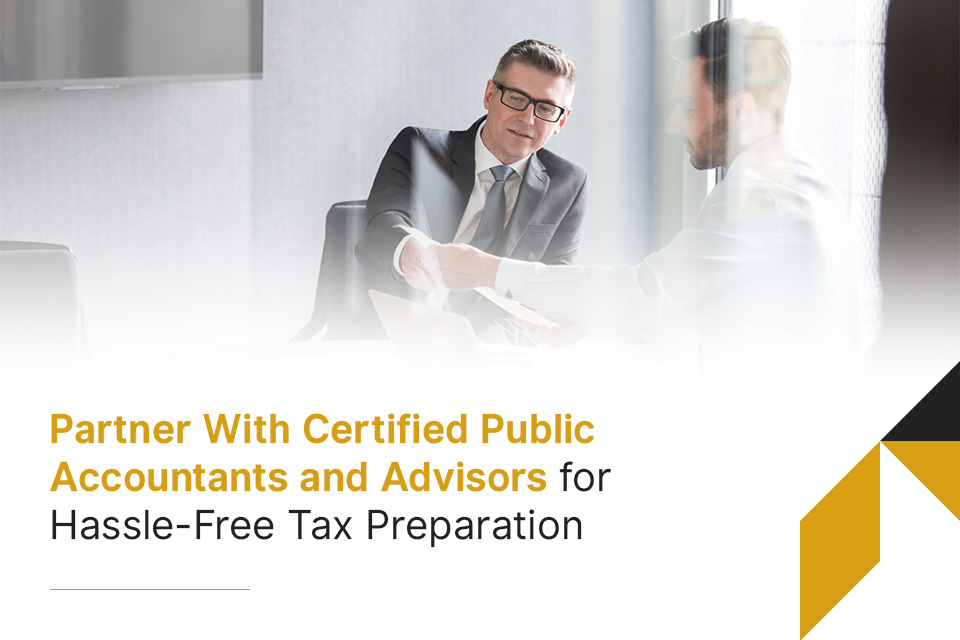Tax Tips for Starting a New Business

Filing business taxes for the first time might be intimidating. Whether you own a salon or a manufacturing company, correctly filing your taxes is a crucial step to staying compliant. To maximize your return and prevent penalties, you must understand the taxes and processes that apply to your situation.
Here’s what to know about taxes when starting a business.
What Is Business Taxation?
Business taxation, at its core, is the money that businesses must pay as a normal part of their operations. The form of business will determine which taxes you’re obliged to pay and when. There are different taxes and rules for each business structure, and they vary according to federal, state and local regulations.
Types of Taxes for Small Businesses
According to the Internal Revenue Service (IRS), there are five general types of small business taxes, including:
- Income tax: This tax is taken directly from the income of all businesses except partnerships. The federal income tax is often paid as you earn or receive income during the year. Forty-two states levy individual income taxes with their own structure and rates.
- Self-employment tax: This is one of the taxes that a business owner pays. It contributes to your coverage under the Social Security system and applies to individuals who work for themselves and earn $400 or more in a year.
- Sales tax: This tax is imposed on the sales of goods and services. Collecting sales tax differs for every state, but you can usually take funds from every transaction.
- Employment taxes: Tax responsibilities for small businesses with employees include social security, Medicare, federal income tax withholding and federal unemployment tax.
- Property tax: The business personal property tax is calculated on tangible personal property, including equipment, furniture and other items that aren’t permanently attached to a building or land.
Choosing the Right Business Structure for Tax Purposes
Choosing the right business structure will determine the amount and frequency with which you’ll pay taxes. Each type offers different benefits, liabilities and complexities. Consulting a professional to review your business will help you pick the structure with better tax benefits.
The different types of business structures include:
- Sole proprietorship: This is the simplest and often cheapest structure if you run your business alone. Tax implications include reporting on Schedule C and the obligation to pay self-employment taxes that add up to 15.3% of taxable income.
- Partnership: In this business structure, you don’t pay taxes directly since the ownership and tax responsibilities are shared between two or more people. You should file an annual information return form 1065 on a Schedule K-1 to report gains and losses.
- Limited Liability Company (LLC): The LLC structure is very flexible — you can be taxed as a sole owner, be in a partnership or use an IRS form 8832 to be recognized as a corporation. Filing business taxes for an LLC for the first time can be complex or costly, but this structure offers more protection to your personal assets.
- C-corporation (C-Corp): C-corporations are seen as separate tax-paying entities. This means that owners aren’t personally responsible for debts and lawsuits. These businesses follow a corporate tax rate and may go through double taxation as a business and as shareholders.
- S-Corporation (S-Corp): S-corporations have the personal asset protection of a corporation structure with single taxation. Requirements to achieve S-Corp status include having no more than 100 owners, offering only one class of stock and being formed in the U.S.
Essential Steps for Tax Preparation
Proper tax preparation is what sets your business up for compliance success. These are some things you need to do to prepare for your first tax filing:
Obtain an Employer Identification Number (EIN)
The EIN is a nine-digit number used by employers, corporations and other business entities. The EIN identifies you as a taxpayer with various business tax returns, and you can apply for one online for free on the IRS website. To speed up the process, you should submit your application after selecting a business structure for your business.
Separate Business and Personal Finances
Opening a separate business bank account will save you time and prevent accounting mistakes in the future. With a business account, you can provide clear records of all cash inflows and outflows with ease. You can use accounting software or a spreadsheet to streamline tax deductions and bookkeeping.
Maintain Accurate Records
Accurate, up-to-date bookkeeping is crucial for tax preparation. Be sure to keep all receipts, invoices and bank statements. Consider using cloud storage to maintain a reliable backup in case of file or paper document loss. You can also outsource your bookkeeping and rely on a certified professional to organize records systematically.
Year-End Accounting Procedures
Performing year-end accounting allows you to understand your profits and expenses. Knowing your numbers before tackling taxes will give you a clear picture of your business finances and help you leverage tax deductions.
Year-end accounting procedures include the following:
- Record and categorize every business transaction
- Reconcile bank statements
- Prepare financial statements
- Gather receipts and invoices
- File tax forms for employees and contractors as applicable
Maximizing Tax Deductions and Credits
Small businesses are eligible for more tax deductions and credits than traditional employers. Knowing the types of operational expenses you may incur is crucial for filing taxes for the first year of owning a business.
Fixed expenses are either constant, like rent and utilities, or variable, like travel or startup costs. Expenses can also be classified by the IRS as ordinary for those that are common to the industry and necessary for those considered appropriate to run a business.
There are different deduction standards for every industry. Consult a certified professional to identify all eligible deductions and credits.
Some common business tax deductions include:
- Rent or mortgage payments
- Office equipment
- Payroll costs (wages, benefits and taxes)
- Utilities
- Interest payments
- Business fees (like licenses, permits and subscriptions)
- Property maintenance and repairs
- Legal or professional fees
Filing and Paying Your Business Taxes
Determining how to file taxes when starting a business requires evaluating your business’s structure, income and location. Some small businesses are required to pay estimated taxes quarterly instead of annually. You can pay your taxes either by sending a 1040-ES form and a check by mail to the closest IRS office or by using the IRS Payments Gateway to pay online or by phone.
If you can’t pay taxes, the IRS may allow you to pay over time through an installment agreement or settle for less than the full amount through its Offer in Compromise program. If you find yourself in this situation, the best move is to contact a tax professional to help you avoid penalties.
Common Tax Mistakes to Avoid
Navigating requirements, forms and processes can be challenging. Here are some tips to avoid mistakes common to beginners filing small business taxes:
- Keep careful records: Protecting your information is crucial to ensure proper tax filing. Be sure to have a data backup plan with synchronized duplicate records.
- Observe due dates: Planning for taxes in advance will save you from penalties and interest. Set aside funds in a separate business account and be mindful of your filing dates.
- Stay aware of account status: Paying invoices and receiving payment can get messy in the day-to-day operations. Use an accounting program to help you manage payables and receivables for you and your customers.
- Track all expenses: Tracking every expense, no matter how minor, will help offset the income your business generates for a lower tax bill.
Partner With Certified Public Accountants and Advisors for Hassle-Free Tax Preparation
Marshall Jones specializes in navigating taxation in the business world. We offer high-quality bookkeeping and tax preparation services for small businesses to help them stay compliant and minimize their risk of overpaying. Contact our team online to see how we can increase your peace of mind and give you more time to focus on your operations.

